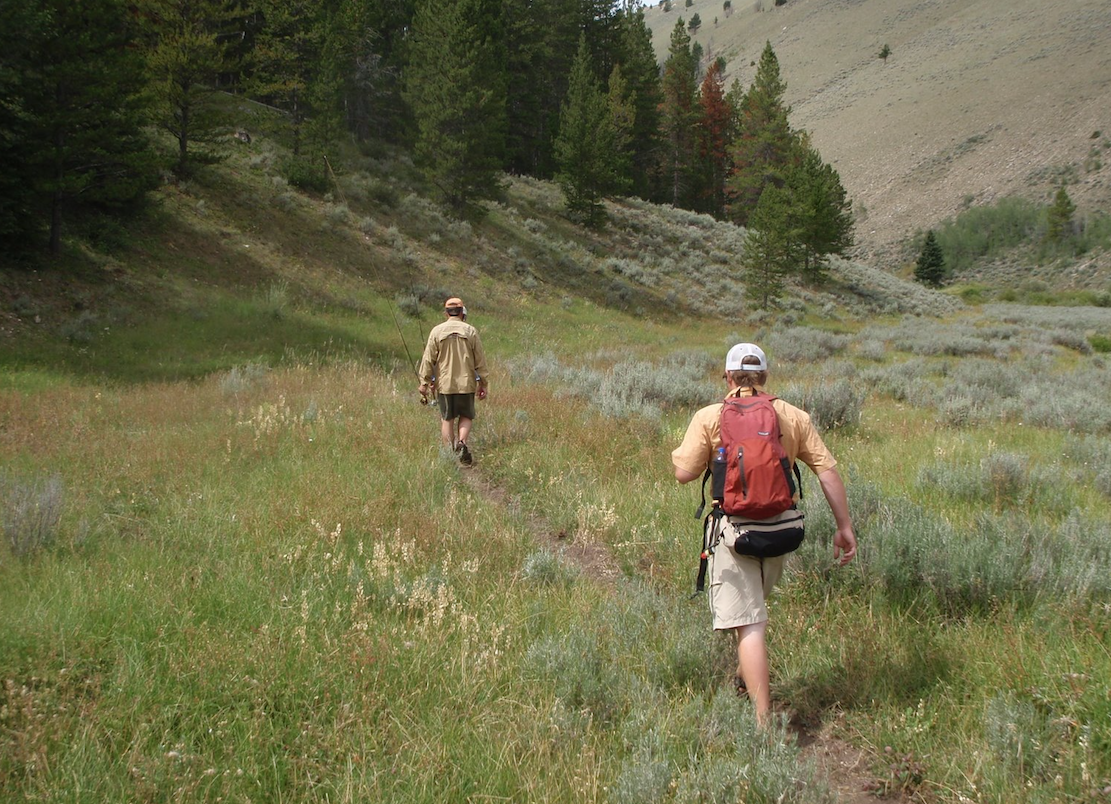By Joel Webster
Efforts to dispose of public lands may grab headlines, but a subtle shift in the management of public lands could present an even greater risk to the future of hunting and fishing. With the spotlight shining brightly on recent proposals to sell off our public lands, the White House and the Department of the Interior quietly set policies in motion last month that have the potential to change the way our public lands are managed.
In tandem, Executive Order 13873 and Secretarial Order 3349 would initiate a few specific processes that could change the way public lands wildlife habitat is valued and managed, especially when it’s at odds with energy development. All Americans—including sportsmen—depend on energy resources, but we want to see development carried out in a balanced way, not at the expense of fish and wildlife habitat or our best hunting and fishing areas.
There are absolutely ways to ensure all of the above, but these orders have the potential to put at risk the critical balancing act carried out by the BLM and other federal agencies. Here’s how.
Diluting Pro-Habitat Policies
Mitigation has long been used to accommodate development in ways that avoid or minimize impacts on important resources like wildlife habitat, and then compensate for unavoidable impacts. Mitigation has been used to avoid or minimize the fragmentation of mule deer winter range from energy development, for example. In some cases, if habitat suffers while accommodating energy development, funds from resource extraction are then put back into conservation of habitat, there or elsewhere.
These executive and secretarial orders eliminated the existing department-wide policy for mitigating impacts to wildlife from development on public lands. They also set a process for evaluating, replacing, or eliminating agency actions taken to implement mitigation. Without good mitigation policies, assurances for fish and wildlife get thrown out the window and accountability for maintaining habitat becomes an afterthought, rather than a requirement.
Vaguely Referencing ‘Burdens’
Second, these two orders establish a process for all federal agencies—including the BLM—to review all existing policies to identify potential “burdens” on energy development. The agencies have been ordered to make recommendations for changing or rescinding policies to remove those burdens, though what exactly constitutes a burden is subject to interpretation. Could it be that managing world-class big-game habitat or outstanding wild-trout streams ar src=”https://mymail.mindshift.com/owa/service.svc/s/GetFileAttachment?id=AAMkAGZjMmJkMDY1LTUwNDItNGRlMi05NDFmLWZkNzk3NTNlNjJjOABGAAAAAACq1TuJB%2FvaR6%2BI5AZs021BBwDCoUWoBlWxTauJBaJgO9eSAAAA%2FOA2AACWFBzrG4tcSJzhzMD7WZclAAAkArmxAAABEgAQAF7KrC8HVlFCk7az%2BRmeptM%3D&X-OWA-CANARY=jIINcroqV0SN3YESSOPQJ20dqlcui9QI6jizb0GaVSp2Q89-o3MXo_9TxsCMEzINKB_6gEWVEzA.” />e perceived as a burden to an energy developer? And, if so, would balanced land management as we know it be altered so that developers can do as they please without being ‘burdened’? Only time will tell.
src=”https://mymail.mindshift.com/owa/service.svc/s/GetFileAttachment?id=AAMkAGZjMmJkMDY1LTUwNDItNGRlMi05NDFmLWZkNzk3NTNlNjJjOABGAAAAAACq1TuJB%2FvaR6%2BI5AZs021BBwDCoUWoBlWxTauJBaJgO9eSAAAA%2FOA2AACWFBzrG4tcSJzhzMD7WZclAAAkArmxAAABEgAQAF7KrC8HVlFCk7az%2BRmeptM%3D&X-OWA-CANARY=jIINcroqV0SN3YESSOPQJ20dqlcui9QI6jizb0GaVSp2Q89-o3MXo_9TxsCMEzINKB_6gEWVEzA.” />e perceived as a burden to an energy developer? And, if so, would balanced land management as we know it be altered so that developers can do as they please without being ‘burdened’? Only time will tell.
Reviewing policies in an attempt to eliminate unnecessary regulations and increase efficiencies is one thing, but sportsmen and women will not support actions that undo the fish and wildlife conservation achievements our community has worked for decades to achieve. We are hopeful that a balance can be found.
Keeping Public Lands Public Not Enough
At TRCP, we’re on the front lines to sound the alarm on sweeping threats to public lands, like H.R. 621 and other legislative attacks. But it’s not enough to keep public lands in public hands if wildlife habitat and outdoor recreation do not rank with energy development or other uses of the land. Executive Order 13873 and Secretarial Order 3349 were introduced with little fanfare, and with so much of the sportsmen’s community focused on keeping public lands in public hands, low-profile actions like these are more likely to fly under the radar and become foundational policies.
Don’t let that happen. Not every threat will come with a catchy hashtag or fit nicely on a bumper sticker, but your voice will be just as critical in the fight against these subtle policy moves. And TRCP, NWF and TU will be there to let sportsmen and women know when there’s a chance to take action.
Joel Webster is the director of the Center of Western Lands for the Theodore Roosevelt Conservation Partnership. TRCP, TU and the National Wildlife Federation comprise the cooperative group, Sportsmen for Responsible Energy Development.



